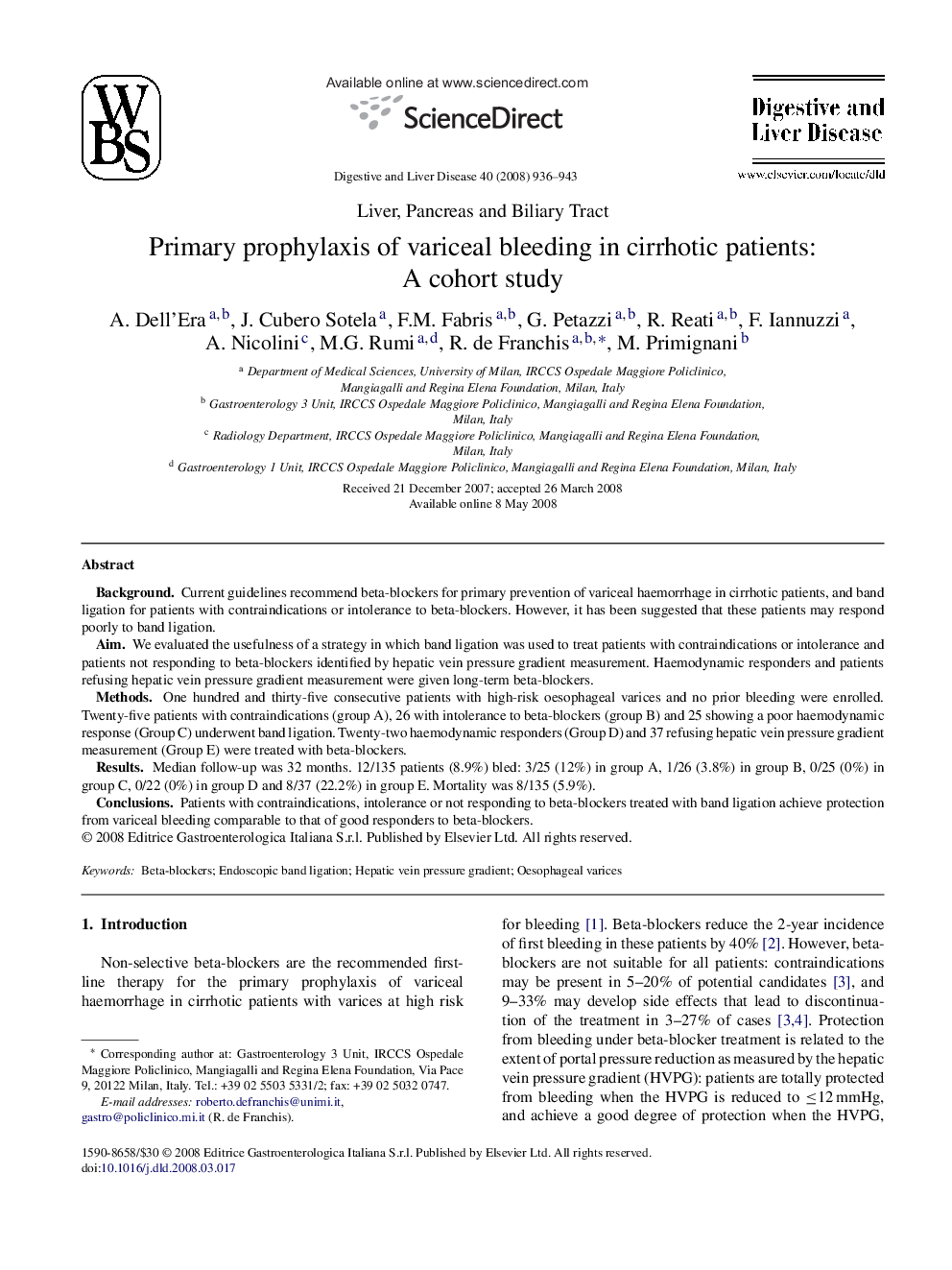| Article ID | Journal | Published Year | Pages | File Type |
|---|---|---|---|---|
| 3265799 | Digestive and Liver Disease | 2008 | 8 Pages |
BackgroundCurrent guidelines recommend beta-blockers for primary prevention of variceal haemorrhage in cirrhotic patients, and band ligation for patients with contraindications or intolerance to beta-blockers. However, it has been suggested that these patients may respond poorly to band ligation.AimWe evaluated the usefulness of a strategy in which band ligation was used to treat patients with contraindications or intolerance and patients not responding to beta-blockers identified by hepatic vein pressure gradient measurement. Haemodynamic responders and patients refusing hepatic vein pressure gradient measurement were given long-term beta-blockers.MethodsOne hundred and thirty-five consecutive patients with high-risk oesophageal varices and no prior bleeding were enrolled. Twenty-five patients with contraindications (group A), 26 with intolerance to beta-blockers (group B) and 25 showing a poor haemodynamic response (Group C) underwent band ligation. Twenty-two haemodynamic responders (Group D) and 37 refusing hepatic vein pressure gradient measurement (Group E) were treated with beta-blockers.ResultsMedian follow-up was 32 months. 12/135 patients (8.9%) bled: 3/25 (12%) in group A, 1/26 (3.8%) in group B, 0/25 (0%) in group C, 0/22 (0%) in group D and 8/37 (22.2%) in group E. Mortality was 8/135 (5.9%).ConclusionsPatients with contraindications, intolerance or not responding to beta-blockers treated with band ligation achieve protection from variceal bleeding comparable to that of good responders to beta-blockers.
